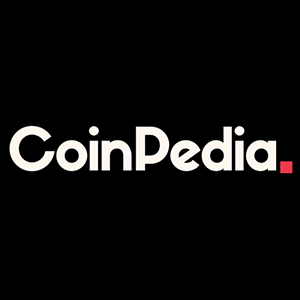Brazil Crypto Regulation: A Crucial Leap Towards Transparent Digital Asset Accounting
7 min read
BitcoinWorld Brazil Crypto Regulation: A Crucial Leap Towards Transparent Digital Asset Accounting The landscape of digital assets is constantly evolving, and with this rapid transformation comes the pressing need for clear, comprehensive regulatory frameworks. For businesses and investors navigating the volatile yet promising world of cryptocurrencies, clarity in financial reporting is not just a preference—it’s an absolute necessity. In a significant move that underscores its progressive stance on financial innovation, the Central Bank of Brazil is stepping up to address this critical need, ushering in a new era for digital asset accounting . Why Brazil Crypto Regulation is Taking Center Stage Brazil has long been recognized as a trailblazer in financial technology adoption, from its highly successful PIX instant payment system to its proactive exploration of a Central Bank Digital Currency (CBDC). This innovative spirit extends naturally to its approach to cryptocurrencies. The recent announcement from the Central Bank of Brazil (BCB) to update its accounting rules for digital assets held by companies is not just a bureaucratic formality; it’s a strategic move to integrate digital finance more seamlessly into the traditional economy. This forward-thinking approach aims to provide the much-needed legal and accounting certainty that institutional players and large corporations require to fully embrace the digital asset space. It signals Brazil’s commitment to fostering a secure and transparent environment for crypto innovation, setting a precedent for other nations to follow. Understanding the Nuances of Digital Asset Accounting For many years, companies holding cryptocurrencies or engaging in digital asset activities have faced significant ambiguity regarding how these assets should be classified and reported on their balance sheets. Unlike traditional assets, digital assets possess unique characteristics, such as decentralization, pseudonymity, and high price volatility, which pose complex challenges for conventional accounting principles. The BCB’s initiative seeks to demystify this process, providing specific guidelines for various types of digital assets. This includes, but is not limited to, cryptocurrencies like Bitcoin and Ethereum, stablecoins, Non-Fungible Tokens (NFTs), and even potential future CBDCs. The new rules will clarify how companies should record assets that are: Issued: How to account for tokens or digital currencies that a company itself creates and issues. Received: Guidelines for recording digital assets obtained through sales, services, or investments. Held in Custody: Clear rules for financial institutions or service providers that hold digital assets on behalf of clients. This comprehensive approach is vital for ensuring accurate financial statements, which in turn builds investor confidence and reduces regulatory risk for businesses operating in the crypto sphere. The Role of the Central Bank Brazil in Shaping Crypto Policy The Central Bank of Brazil (BCB) has consistently demonstrated a pragmatic and measured approach to financial innovation. Rather than outright bans or excessive restrictions, the BCB has opted for a strategy of understanding, adapting, and integrating new technologies into its regulatory framework. This latest update to accounting rules is a testament to this philosophy. By initiating a public consultation on the regulatory draft, which began on August 24, the BCB is inviting stakeholders—including crypto companies, financial institutions, accounting firms, and the general public—to provide feedback. This collaborative approach is crucial for developing robust and practical regulations that truly serve the needs of the market while safeguarding financial stability. The BCB’s proactive engagement helps ensure that the new rules are not just theoretically sound but also operationally feasible for businesses navigating the complexities of digital assets. Setting New Crypto Accounting Standards: A Global Precedent? The move by Brazil’s central bank comes at a time when global financial bodies and national regulators are grappling with the challenge of establishing clear crypto accounting standards . Currently, there’s no universally accepted framework, leading to inconsistencies in how digital assets are treated across different jurisdictions. Some countries classify them as intangible assets, others as commodities, and some even as currencies. Brazil’s detailed approach, particularly its inclusion of specific scenarios like staking and airdrops, could potentially serve as a blueprint or at least a significant case study for other nations and international standard-setting bodies like the International Accounting Standards Board (IASB) or the Financial Accounting Standards Board (FASB). By providing clear guidelines for these complex transactions, Brazil is contributing to the broader effort to bring greater transparency and comparability to financial reporting in the digital asset space. This clarity is essential for fostering institutional adoption and integrating crypto into the mainstream financial system. Navigating Staking and Airdrops Accounting Complexities One of the most anticipated aspects of the BCB’s new rules is their specific coverage of assets derived from staking and airdrops accounting . These activities, while common in the crypto world, present unique accounting challenges: Staking: When users lock up their cryptocurrencies to support the operations of a blockchain network, they often receive rewards in return. The accounting treatment of these rewards – whether they are considered income, a new asset, or something else – has been a grey area. The new rules are expected to provide clarity on when and how these rewards should be recognized and valued. Airdrops: These are distributions of free tokens to a large number of cryptocurrency wallet addresses, often as a marketing strategy or a way to decentralize ownership. Determining the fair value of airdropped tokens, especially if they have no immediate market, and how they impact a company’s income or assets, has been a significant hurdle. By addressing these specific scenarios, the BCB is demonstrating a deep understanding of the intricacies of the crypto ecosystem, moving beyond generic definitions to provide actionable guidance for businesses engaged in these popular activities. This will undoubtedly reduce uncertainty and help companies ensure compliance with tax and financial reporting obligations. Benefits of Clear Digital Asset Accounting Rules The implementation of updated accounting rules for digital assets offers a multitude of benefits for the Brazilian economy and its participants: Enhanced Transparency: Clear rules lead to more accurate and comparable financial statements, providing stakeholders with a true picture of a company’s digital asset holdings and activities. Increased Investor Confidence: With greater transparency and reduced accounting ambiguity, investors, both domestic and international, will feel more secure in allocating capital to companies involved in the digital asset space. Reduced Regulatory Risk: Businesses will have a clearer understanding of their obligations, minimizing the risk of non-compliance, penalties, and legal challenges. Facilitated Institutional Adoption: Financial institutions and large corporations, which often operate under strict accounting standards, will find it easier to engage with digital assets once the accounting framework is clear. Improved Tax Compliance: Clear accounting rules naturally pave the way for more straightforward tax reporting and collection related to digital asset activities. Fostering Innovation: By providing a stable regulatory environment, Brazil encourages further innovation in the blockchain and cryptocurrency sectors, attracting talent and investment. Challenges on the Horizon While the move is overwhelmingly positive, implementing these new rules won’t be without its challenges: Complexity of Digital Assets: The sheer variety and evolving nature of digital assets mean that accounting rules must be flexible enough to adapt to future innovations. Valuation Difficulties: The volatile nature of many cryptocurrencies can make consistent and accurate valuation challenging, requiring frequent re-evaluations. Need for Skilled Professionals: Companies will require accountants and auditors with specialized knowledge of digital assets and blockchain technology to ensure proper implementation of the new rules. International Harmonization: As Brazil sets its standards, the challenge remains for these rules to align with, or at least be reconcilable with, global accounting practices to facilitate cross-border operations. Technological Integration: Accounting systems may need significant upgrades to accurately track and report digital asset transactions in accordance with the new guidelines. Actionable Insights for Businesses and Investors For companies currently holding or planning to engage with digital assets in Brazil, here are some actionable insights: Stay Informed: Actively follow the public consultation process and the finalization of the new accounting rules by the Central Bank of Brazil. Assess Current Holdings: Conduct an internal audit of all digital assets currently held, including those from staking and airdrops, to understand their nature and volume. Engage with Experts: Seek advice from legal, accounting, and tax professionals who specialize in digital assets to understand the implications for your specific business. Prepare for System Updates: Evaluate your current accounting software and systems to determine if they can handle the new reporting requirements for digital assets. Provide Feedback: If you have insights or concerns, participate in the public consultation process to help shape the final regulatory framework. Train Your Team: Ensure your finance and accounting teams are educated on the specifics of digital asset accounting and the new Brazilian regulations. A New Dawn for Digital Finance in Brazil The Central Bank of Brazil’s initiative to update accounting rules for digital assets is a pivotal moment for the nation’s burgeoning digital finance sector. By providing much-needed clarity and structure, Brazil is not just reacting to the rise of cryptocurrencies; it is actively shaping a responsible and transparent future for them. This move will undoubtedly pave the way for greater institutional participation, foster innovation, and solidify Brazil’s position as a leader in the global digital economy. As the public consultation progresses and the final rules take shape, the entire crypto community will be watching, eager to see how this crucial step influences the broader conversation around digital asset regulation worldwide. To learn more about the latest Brazil Crypto Regulation trends, explore our article on key developments shaping Digital Asset Accounting and institutional adoption. This post Brazil Crypto Regulation: A Crucial Leap Towards Transparent Digital Asset Accounting first appeared on BitcoinWorld and is written by Editorial Team

Source: Bitcoin World



